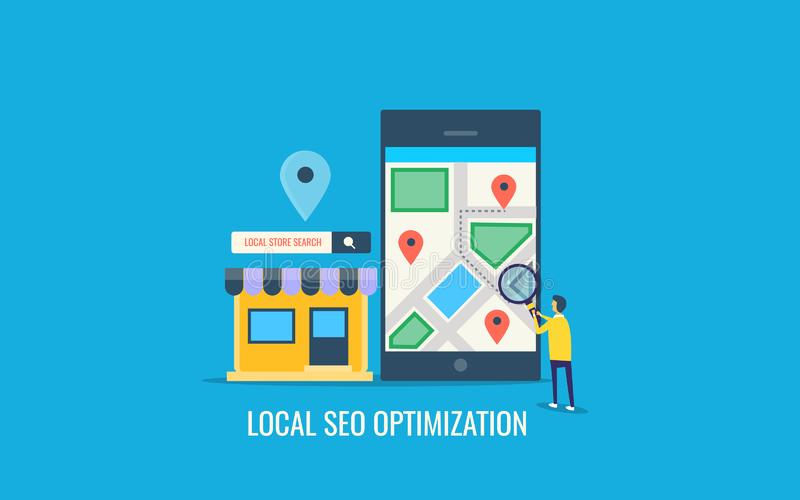Local SEO refers to the technique of optimizing your online presence in order to boost search engine exposure among local users and potential clients in your region.
So, what is the significance of local search? Because local companies account for 45 percent of all Google searches.
According to a Forbes research, 95 percent of individuals use their mobile devices to complete local searches, with 61 percent calling and 59 percent visiting the company.
Another survey found that 88 percent of mobile searches for local companies result in a call or visit within 24 hours.
The “Local Pack” from Google is the gold standard of local search engine marketing. You’ve probably noticed the three companies that display in the box at the top of search results page, along with a map and dropped pins… Unsurprisingly, they receive more clicks and consumers than any links farther down the page.

Do I need Local SEO?
Local SEO might help your business if you have a local consumer or client base.
Some businesses may be unaware that they may be attracting more customers from beyond their immediate region by utilizing Local SEO. This is especially important for anybody in the food or hotel industry, because non-local customers may look elsewhere before visiting your establishment.
WHAT KINDS OF BUSINESSES REQUIRE LOCAL SEO?
- Hotels, restaurants, cafes, and bars are examples of hospitality.
- Doctors, dentists, and clinics are examples of medical practices.
- Solicitors and barristers work in law companies.
- Florists, plumbers, electricians, hair salons, accountants, fitness centers, and other local services and Small businesses

Local SEO makes your business stand out, even if you don’t have a website, and drives more visitors to your location via internet leads.
Because these leads come from people who are explicitly looking for the items or services that your company provides, they are more likely to convert.
Local intent searches are on the rise, with 4 in 5 customers increasingly utilizing search engines to locate local information, and search result information directing a whopping 70% of consumers to a real location.
Local SEO also influences people’s decisions in your favor. The more knowledge they have about your company before visiting, the more trustworthy you appear to them.

What are the Most Important Local SEO Ranking Factors?
- Relevance is the degree to which people’s searches correspond to a local listing. Providing extensive business information will assist Google in better understanding your company and matching your listing to the most relevant queries. Localized content strategy and keyword research help with this.
- Distance: the distance between each possible business and the search terms. If a consumer does not indicate a location in their search, Google will compute the distance based on the information available about their location.
- Prominence: how well-known a firm is, based on information gathered by Google from throughout the internet (like links, articles and directories). Google review count and score are also taken into account when evaluating local businesses; more reviews and favorable ratings will boost a business’s local position.

When you use local SEO tactics, your business’s searches become more focused. Local searches are looking for a specific business or place, which means that if done correctly, your company might be in a better position to market the items or services it provides.
Local SEO is less expensive than typical advertising strategies. A local newspaper or radio station advertisement might cost hundreds or even thousands of dollars. Many local SEO approaches are free to adopt and apply, allowing you to spend more money on other SEO measures if you so want.
Local searches are often seeking information about local companies, thus having information easily available (i.e. your name, address, and contact information) on your website and through specific channels is essential for business strategy and promoting sales.






